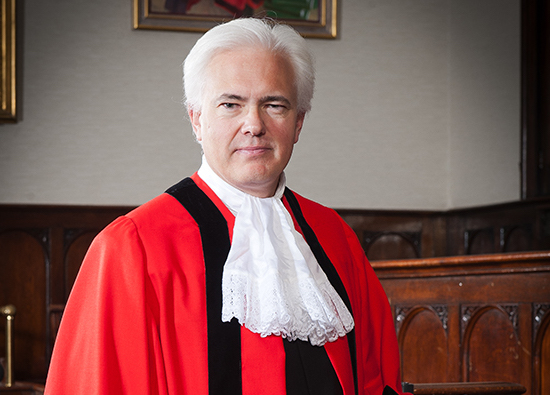


A local lawyer, who made "distressing" allegations of voyeurism in letters to his neighbours written using his firm's headed paper before contacting their employers, has apologised to the Royal Court.
After his behaviour in the neighbourly dispute was raised with the Law Society's Disciplinary Committee, the Advocate - whose identity has not been released - was given a "private rebuke".
However, the Royal Court said that, had it been considering the case, it would have called him out in public.
The case is detailed in a recently published judgment of the Royal Court, which had been asked to consider an appeal by the Law Society against the Disciplinary Committee's decision to dismiss some of the charges against the lawyer and to impose a private sanction.
The Deputy Bailiff, Robert MacRae, heard the appeal alongside Jurats Jerry Ramsden and Robert Christensen. They dismissed the Society’s appeal.
The Law Society had made 28 separate allegations of misconduct against the lawyer, whose name was kept anonymous in the judgment, after he sent four letters to his neighbours in August 2020 amid a dispute.
The court heard that the advocate’s wife believed the neighbours had been taking photos of her children and shared her concerns with him. The Disciplinary Committee concluded the lawyer did have such a belief and held it honestly, but his response to the dispute and this belief was “inappropriate”.

Pictured: The case was heard by the Deputy Bailiff, Robert MacRae.
He sent four letters, three on 10 August and a fourth on 30 August 2020, from his home on his law firm’s headed notepaper, and signed them in his role as an advocate.
While he said he had used the paper by mistake, the Disciplinary Committee concluded he had done so “intentionally” and rejected the view that the letters were private correspondence but rather intended to have the “full weight and effect of a legal letter”.
The letters contained “serious allegations” against the neighbours, including accusations of breach of privacy and data protection as well as “voyeurism”.
The Committee found the allegations coupled with repeated references to child protection issues was not only serious but “must be regarded as extremely distressing to anyone who reads it as these are clearly allegations of a sexual nature.”
In addition, the Committee found the letters contained threats, which the lawyer carried out as he wrote to the employers of both neighbours about the allegations, he had made against them and made a data subject request in relation to information that they might have stored on their systems containing images of his garden, children, and wife.

Pictured: The advocate's letters contained “serious allegations” against the neighbours, including accusations of breach of privacy and data protection as well as “voyeurism”.
In the letters, the lawyer asked his neighbours to provide copies of all images, videos, audio files, as well as confirmation the files had been destroyed. He repeated his request in the final letter in which he also alleged his neighbours had questioned the credentials of a Polish workman carrying out work at his home.
The Committee dismissed 16 of the complaints laid by the Law Society and opted for a private rebuke as a sanction - a decision which the Society challenged by appealing to the Royal Court.
The Court, however, decided not to interfere with the Committee’s decision and rejected the arguments brought forward by the Society.
In relation to the sanction it decided to impose, the Court noted it must have been “principally, or at least very substantially” concerned about the advocate's mitigating personal circumstances - which were not explained in the judgment - to have given them weight when deciding on a sanction.
They added, however, that the most important purpose of imposing disciplinary sanctions was to “maintain public confidence in the legal community”.
Although the Royal Court concluded the sanction was within “the range of appropriate penalties” the Disciplinary Committee was able to impose and decided not to interfere with it, they suggested they would have adopted a different approach if they had been the ones imposing the sanction.
“We have no doubt that had we been considering this matter then we would have imposed a public reprimand and not the private rebuke that was imposed by the Disciplinary Committee,” they added.
“We informed the advocate of this fact at the end of the oral hearing and he apologised to us for his conduct.”
Comments
Comments on this story express the views of the commentator only, not Bailiwick Publishing. We are unable to guarantee the accuracy of any of those comments.